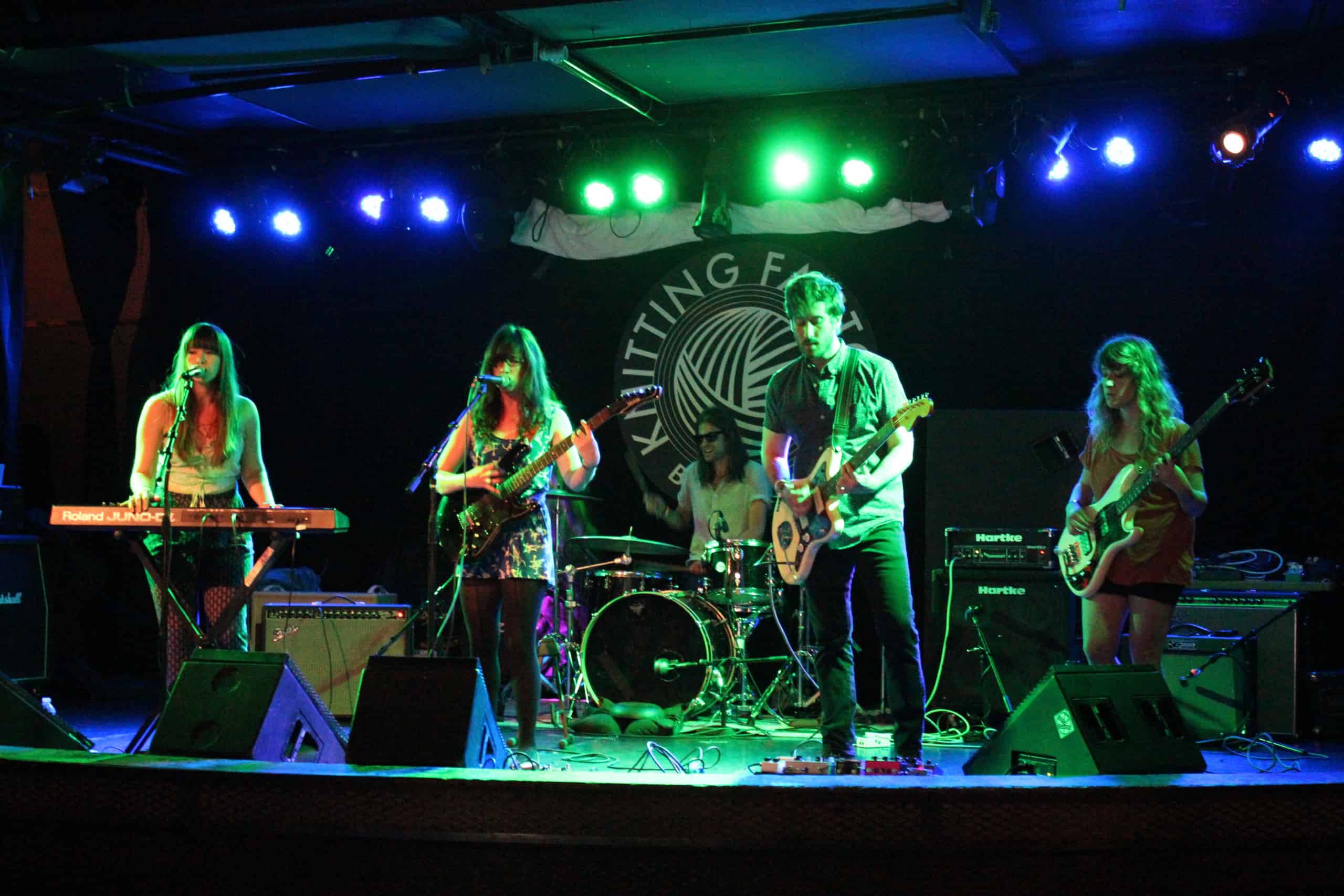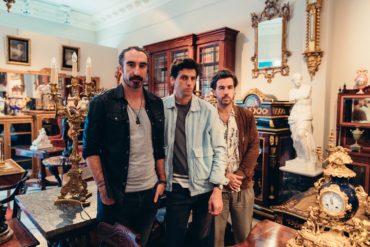Pom Pom Squad’s Mia Berrin breaks through the bounds of modern music on sophomore album ‘Mirror Starts Moving Without Me,’ crafting a full record that is wholly and thoroughly her.
Stream: ‘Mirror Starts Moving Without Me’ – Pom Pom Squad
Mia Berrin from Pom Pom Squad is always pushing for the next greatest thing.
Following the success of her debut record, Death of a Cheerleader, comes Mirror Starts Moving Without Me (released October 25th via City Slang), an 11-track strong body of work that challenges perceptions, perfection, and identity.

Mirror Starts Moving Without Me is a culmination of Berrin’s journey as an artist so far, and her thoughts on identity, beauty, and the self vs the artist. The album’s title, Berrin explains, derives from cinematic horror, “that trope in particular – the one where a character looks in the mirror, and the reflection does something the character doesn’t – really resonates. It feels tied to some kind of underlying darker ambition or ulterior motive.” More than that, is Berrin’s own reckoning with what authenticity means to her, and what these songs present are a conversation between Mia Berrin, the artist, and Mia Berrin, the frontwoman of Pom Pom Squad. Mirror Starts Moving Without Me playfully and poignantly reclaims the disconnect between the two, as Berrin redefines what it looks like to be a queer, mixed-race woman artist in the current industry space.
“With Mirror, it’s about accepting myself as a whole – who I am at my core.” Berrin may have written this record directly from her own experiences, but she also – serendipitously – extends a hand to her fans, providing them with a musical vocabulary for the synonymous existence of feelings, being, and desires. She shares, “It’s actually the fans of Pom Pom Squad that I feel most connected to. I feel like I’m creating something I needed when I was younger.”
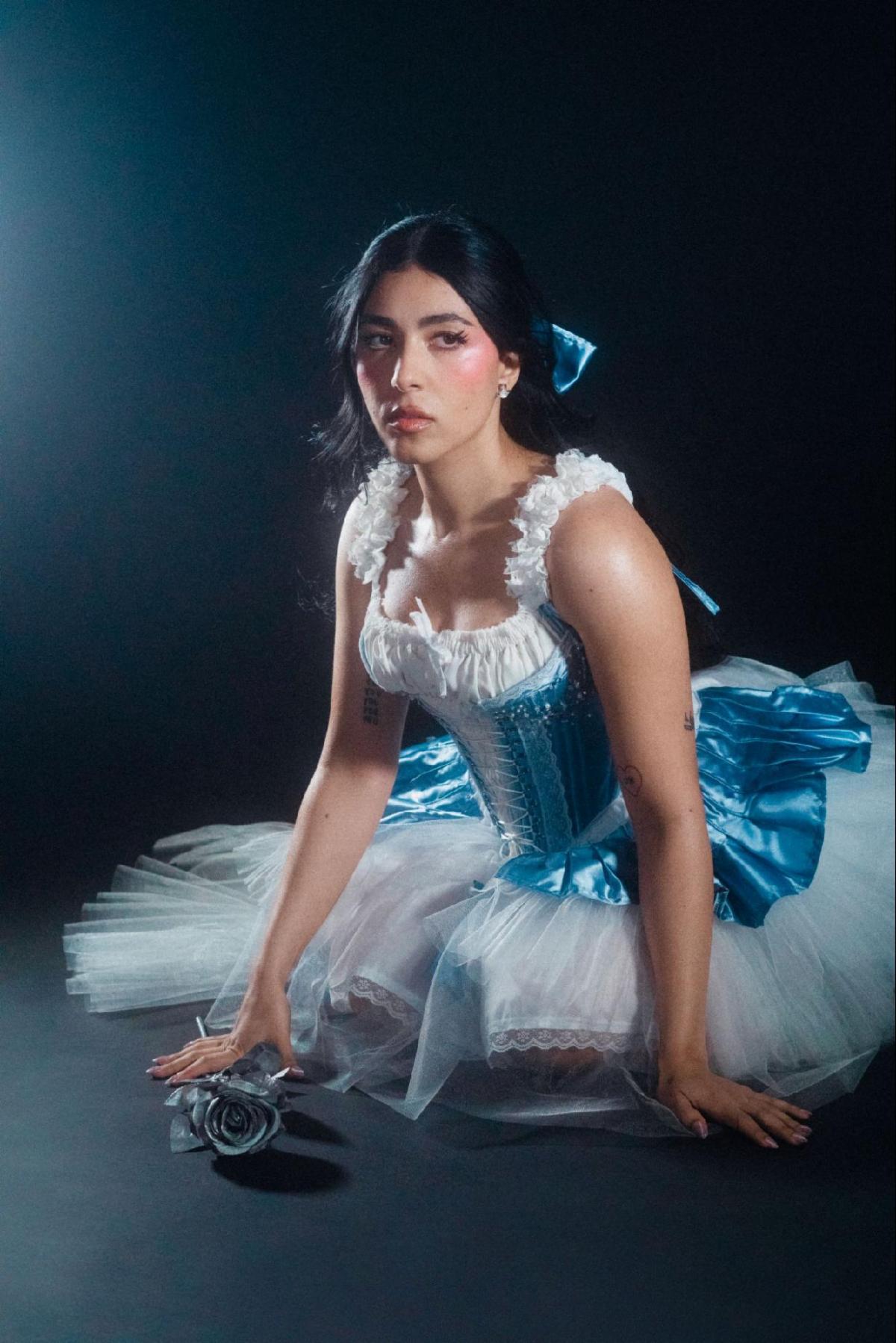
I met Berrin a week before our interview at Pitchfork Music Festival in London. It undoubtedly provided me with a context to delve deeper into her artistry during our conversation, and for me to truly understand the role her fans play in her craft – her connection to them was undeniably clear.
Mirror Starts Moving Without Me is an exploration of the self through a lens of intersectionality, and we got to chat about ideas of perfection and palatability, beauty, and how Mirror presented a return to form for the band. Lyrically, musically and exponentially, the band shut the noise and turned inward, crafting an extraordinary body of work that Pom Pom Squad fans will hold close for years to come.
— —
:: stream/purchase Mirror Starts Moving… here ::
:: connect with Pom Pom Squad here ::
— —
Watch: “Doll Song” – Pom Pom Song
A CONVERSATION WITH POM POM SQUAD
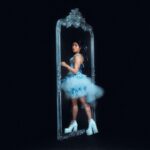
Atwood Magazine: Congratulations on the new record! I understand you’ve been on tour straight after the release, what has that been like?
Pom Pom Squad: It’s been nice. I mean, honestly, I think it’s good timing because seeing people in real life, like, listen to the songs and react to them – it makes it feel a lot more tangible and real. I think, you know, putting out music online, like, it happens, and then you see comments or you see press, and that’s all really nice, but it doesn’t always feel like a human-to-human interaction. So, yeah, it’s definitely made the whole thing feel a lot more real.
The name of the album is ‘Mirror Starts Moving Without Me,’ and you’ve talked about how that draws from very specific influences in horror. Can you expand a bit more on the concepts behind the record and what inspired its conception?
Pom Pom Squad: Yeah, absolutely. I mean, I’m a big horror fan, and for whatever reason, the horror canon really speaks to me. That trope in particular – the one where a character looks in the mirror, and the reflection does something the character doesn’t – really resonates. It feels tied to some kind of underlying darker ambition or ulterior motive.
For me, when I was writing the album, I was struggling to manage these two poles of my personality, which I still don’t fully understand. There’s the part of me that feels more natural – someone who’s reserved, shy, not the loudest person in the room. And then there’s the other side of me – the performer who wants to be seen and heard, who isn’t satisfied just singing or making music without showing it to anybody. I don’t totally get how both of those sides coexist in me or how they relate to my goals. It feels strange that these two opposing forces are part of who I am. So yeah, a lot of the album deals with this tension – the push and pull between person and persona that I was experiencing at the time.

That trope in particular – the one where a character looks in the mirror, and the reflection does something the character doesn’t – really resonates. It feels tied to some kind of underlying darker ambition or ulterior motive.
Absolutely, I think this album really captures the dynamic and complex sides of an artist. You mentioned this record is one of your more challenging, creative ventures, why was that?
Pom Pom Squad: Yeah, I think I have a tenuous sense of self at times, and I think everyone has their own life lessons that they keep coming back to. I think my life lesson, my journey, is always going to relate to identity. Losing myself, finding myself, and refining myself – it’s a cycle I tend to be caught up in.
And, yeah, identity is one of those things that’s hard to be objective about because it’s such an internal, personal thing. I think the reason I write about it is because it’s not the easiest thing to parse out in everyday conversation. This record was emotionally challenging because the subject matter is a little thornier than what I’ve written about in the past. A lot of my older music was about relationships or love and breakups. There’s still some of that in this record, but, for the most part, it’s really centered around identity and closer, more personal subject matter, you know?
Yeah, yeah, for sure. Were there any songs that were particularly hard for you to write?
Pom Pom Squad: There are a couple of songs, but one of the harder ones to finish lyrically was “Spinning.” That one was almost difficult for me to finish because I didn’t totally know how to find the words to say what I wanted to say. The song deals with regret and aging, meeting your goals and realizing they’re not what you wanted – all these big life feelings that aren’t the most common subjects in music. There are songs about these themes, for sure, but they’re not the type of songs we hear most of the time. Like, there’s a lot of language around breakups, relationships, and love in songwriting. Those are big, complicated, relatable feelings that everyone’s experienced, so there’s a lot to pull from. But with “Spinning,” it’s about something I don’t talk about every day – or even know how to talk about every day. It’s harder to process a subject like that because the subject is me, and I’m the least objective person to talk about myself clearly or coherently. I think that’s why a song like “Spinning” was harder to finish.
Right! I think given the kind of subject music is typically about, it can often feel like we don’t have that vocabulary yet. What has that journey with ‘authenticity’ been like for you through your music?
Pom Pom Squad: Yeah, absolutely. When I started writing this album, I felt really lost within myself, and it became important to reconnect with a purer creative channel. Being a musician – when it’s both your passion and your job – is complicated because what fulfills you and what pays you don’t always align.
At first, I struggled to separate my creative voice – what I wanted – from other people’s expectations of what a Pom Pom Squad record should be, or what they imagined the second album might look like. Writing from that place didn’t feel pure or fun. The music that has resonated most with others has always come from me writing for myself, not for anyone else’s expectations. I’m so lucky that my music connects with people. That connection is one of the most beautiful things about being an artist, but it also brings an external voice into your head – the constant question of whether people will relate to what you’re making. For me, the most fulfilling thing is to express myself honestly and then feel joy when people hear it and say, Me too. I’ve been there. Writing with the hope that people will relate doesn’t feel as authentic.
I make music because I need a place to put my feelings. On a personal level, I’m pretty reserved, so it’s not always easy for me to connect with people. Music has become the way I do that, and it’s allowed me to share a version of myself that feels real. These are things I need to say for me – not things I’m saying for anyone else. The fact that those honest feelings resonate with others is incredible. In my personal life, I tend to mold around other people’s energies. Music has become the space where I don’t have to do that – it’s my space. Compromising that feels like a failure to myself. I created that space for me, and it’s accidentally become a space for everyone else too. I love that, and I want to nurture it, but I also need to stay honest in my creativity. I want to fulfill my purpose as an artist first. If I focus too much on whether people will relate, the connection won’t feel real.
Music started out as your space to talk about whatever you were feeling, but when you mix that in with the fact it’s your job it inevitably makes it less of a safe space.
Pom Pom Squad: Yeah, it’s actually the fans of Pom Pom Squad that I feel most connected to. I feel like I’m creating something I needed when I was younger – like I would’ve really needed a project like this as a teenager. That’s the place I’m always trying to come from, a pure place, because I think that’s what people care about most. I don’t know, I think everyone is very conscious of being pandered to. It’s such a turnoff. Oh my God, I’m going off on a tangent here, but let me go with it, haha! I was on TikTok recently, and this girl posted something asking, “What makes you actually stop and listen to an artist on TikTok?” And all the comments were basically like, Nothing. Nobody wants to feel like they’re being sold to or told, I sound like this person, so you should like me too. And that’s the trap of trying to have a music career right now. It pushes you to box yourself in, to package yourself differently so you’re more palatable, and I don’t want to do that. There were points in the writing process where I caught myself thinking, What’s the most palatable thing I could do? And that’s just not fun. It’s not fun for me, it’s not fun for the listeners, and most importantly, it’s not honest. That’s what I want to avoid.
How do you shut that noise out?
Pom Pom Squad: Very intentionally. It’s so easy to get swept up in the whirlwind of it all, especially with social media. Posting on TikTok or similar platforms feels like buying a lottery ticket every day – everyone’s vying for a shot at a shot at something. It’s commercialized independent music in a way that’s honestly a bummer. And it’s not the musicians’ fault. All of us just want to do what we love for a living, and I think most of the people making those “If you like me, you’ll like this person” TikToks are doing it out of pure love for what they do, out of hope and aspiration to be a full-time artist. That’s why anyone gets involved in the commercial side of music, right? But as a fan, as a listener, it takes something away from the music.
I don’t want you thinking about me when I make it. I don’t want you to think about what I would like to listen to. I want to make music that feels true, and as a listener, I want music that teaches me something about the artist through their lyrics – or even just writing that’s clever, funny, or enjoyable. That’s the kind of artistry I want to engage with. But I do feel like lyricism is becoming a lost art. It’s rare to find songs where the words truly stand out. For me, as someone who loves lyrics, it’s hard not to notice when they don’t. The lyrics are often what keep me connected to a song – they’re what tell me about the artist, even when the writing is subtle. I think it’s tough for any artist, myself included, not to get bogged down by the industry side of things. The balance between making art and playing the game is really hard to maintain.
It’s sort of like the beauty standards for women, and how social media affects that too. It’s very similar to music, in a way.
Pom Pom Squad: Oh my god yes! You know, as someone who’s a woman and has been very engaged with beauty standards since I was young, it all kind of ties back to the same thing in a weird way – palatability, capitalism, and acceptability. I have a complicated relationship with beauty, for sure. And I wonder what we’re all really seeking in it – whether it’s comfort, ease, or something else. At the end of the day, we all think we want perfection, but I don’t think we actually do. Because then, if someone’s “too perfect,” everyone hates them. If someone’s “too pretty,” we hate them. If they’re too commercial, we hate them. It’s all this trap, and a really shitty one. But I think perspective, empathy, authenticity, and individuality are all so undervalued. I’m hoping to see a bit of a comeback for those things.
I really admire that you’ve been so forthright about your identity throughout your career, is that something you’ve done quite intentionally through your music and why is that important for you?
Pom Pom Squad: Yeah, I mean, I think so. Identity, like I was saying, growing up, I didn’t see many spaces for myself as a queer, mixed-race girl – especially not in the indie music scene. It took a lot for me to start taking control of my own destiny because, you know, you can’t be what you can’t see. I turned to media a lot to try to find a place for myself, but when you’re only seeing certain stories, you grow up thinking your story doesn’t exist, that there’s no path for you.
So, Pom Pom Squad really felt like a big step in taking control of my destiny. Like I said, identity is one of my core life lessons, something I always come back to. When I first started playing music, it was about establishing my identity as a young person. When I wrote, I was coming out of a place where I had just lost a lot of my sense of self for different reasons. Writing that first piece really helped me find my way back to myself. Then, with Death of a Cheerleader, it was about my queer identity – coming to terms with myself as a queer person. With Mirror, it’s about accepting myself as a whole – who I am at my core. I feel really lucky that, by approaching my music in that way, I attract people who have similar experiences. I get to look out into the crowd at my shows and see people – girls, gays, everyone – who’ve had similar experiences to mine, enjoying and listening to my music. It’s a very comforting space. So, it’s intentional in some ways, and then it also yields results I didn’t intend, which are amazing.
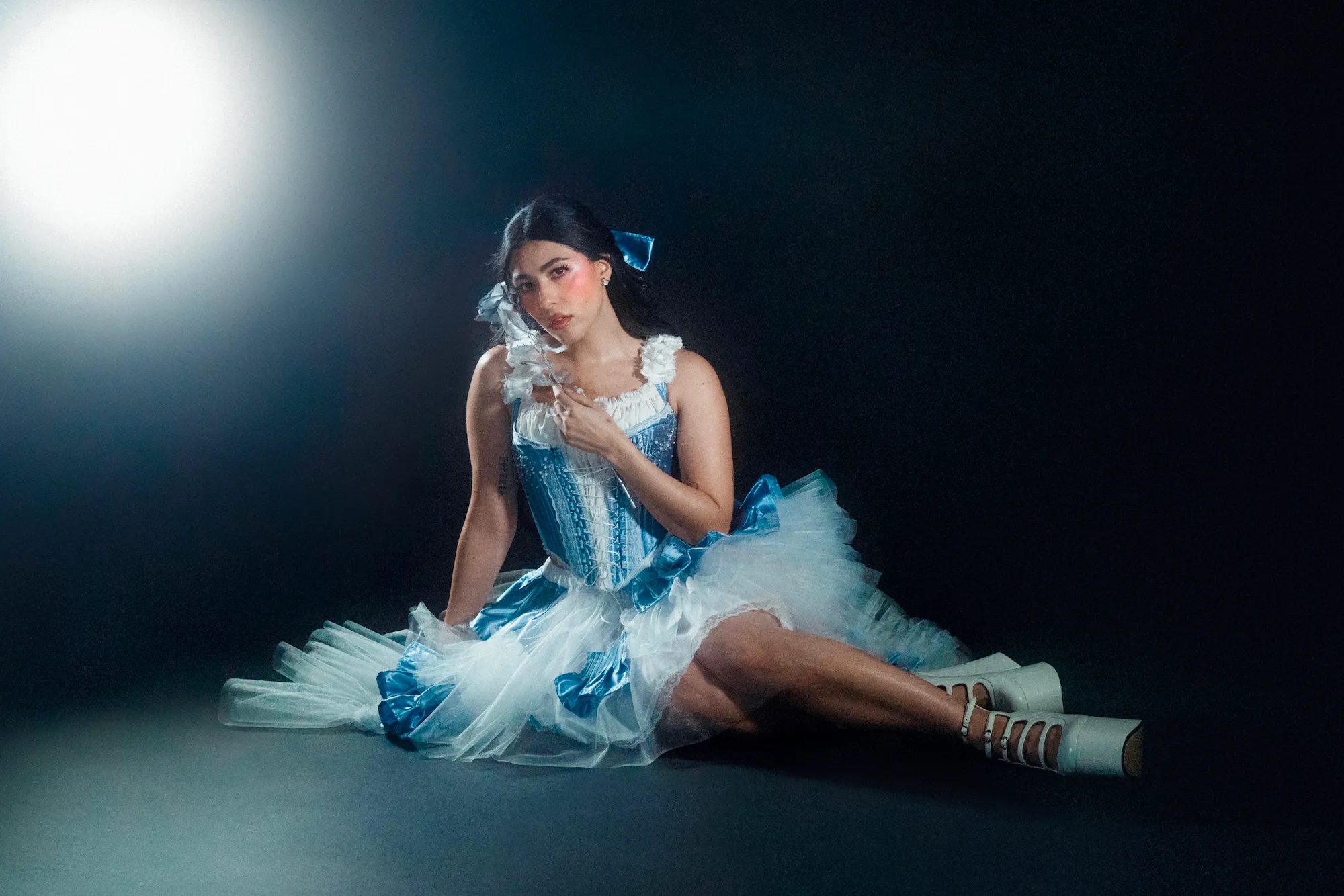
I do feel like lyricism is becoming a lost art. It’s rare to find songs where the words truly stand out. For me, as someone who loves lyrics, it’s hard not to notice when they don’t. The lyrics are often what keep me connected to a song – they’re what tell me about the artist, even when the writing is subtle.
Let’s talk a bit about the visuals and the production on this project, you were involved in most of it.
Pom Pom Squad: Yeah, absolutely. I mean, I’m very involved in everything that has to do with Pom Pom Squad. It’s been my project since I was a teenager, and it really does feel like my space, you know what I mean? So with the production, I went to school for acting for a little while before transferring to a music school to learn production and engineering. As I was starting out in the music industry, I realized how much power producers have and how they can sometimes be a barrier to entry for a lot of voices.
My first experiences with producers were difficult; I felt really pushed around and belittled, and I didn’t want to feel that way in my own creative space. So, I learned how to produce. Over time, I’ve been slowly building my comfort level with production. This project was the biggest production role I’ve had yet, and it was so special. I worked with Cody Fitzgerald, who co-wrote some of the songs with me and co-produced the whole album. He was an incredible collaborator because I needed someone who would let me take the reins but also had the skills to support me. He added so much without compromising any of my creative input. It felt like he cared more about making the best record we could, rather than imprinting his own impact on it, and that was super important. It was an amazing experience, and I’ve never had a collaboration like that before. I’ve worked with incredible people in the past, but Cody was the perfect collaborator for this particular era of my life. It was just great.
And, you know, I love doing visuals too. I’d be hard pressed if someone told me I could make music for the rest of my life but never create another visual again. I think, similarly to music, I’ve always had this need to control how I’m portrayed. Growing up with this project, I don’t trust other people to portray me the way I want to be portrayed. So, I like taking control of my sound, my imagery, and my creative decisions as much as I can. To me, that’s really the purpose of the project – being as true to my own voice as possible.
So I read that you and your band had each created playlists of all your favourite songs from childhood, and you used that to influence this record. Can you tell me what those playlists were like, and how you translated that to this record?
Pom Pom Squad: Yeah, totally. I came up with the playlist idea kind of at the eleventh hour, during the writing sessions. I had a few things left to finish, and I was struggling to round out the album. So, I made this playlist of every song I could remember from childhood to adulthood that really changed the way I listened to music – songs that shifted my perspective on music itself. It was so inspiring. I loved that practice so much that I asked everyone to do it before we went into the studio. On our first day in the studio, we compared playlists, talked about them, and listened to each other’s. It was incredible.
A lot of the songs were ones we had in common, and it was like, “Oh my God, I forgot about this one!” or “I was going to put this on mine!” We all had similar tastes, and there were at least one or two artists we all shared, with some of us having huge chunks of our playlists in common. It really showed me that I have the right group of people around me because we all value the same things in music. It helped us align as a group. What’s interesting is that we ended up referencing the playlists more than anything else – more than looking at our contemporaries or asking, “What’s cool right now?” It felt like a really pure, honest way to reconnect with our own creative instincts.
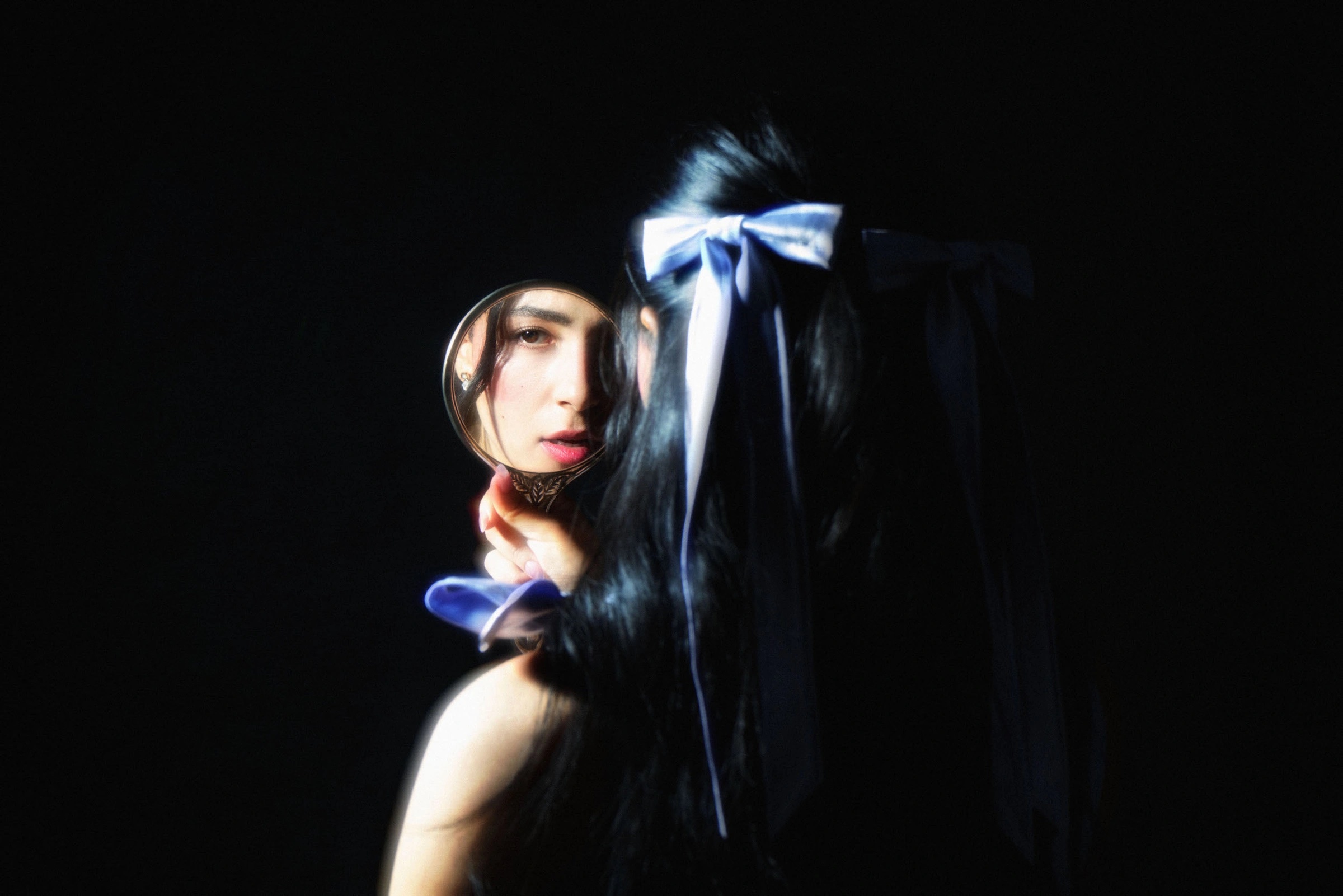
I have a complicated relationship with beauty, for sure. And I wonder what we’re all really seeking in it – whether it’s comfort, ease, or something else. At the end of the day, we all think we want perfection, but I don’t think we actually do.
I was gonna ask if there was a lot of overlap, but it sounds like there was! What are the odds!
Pom Pom Squad: Yeah, and you know, we all grew up in different places. We all met as adults, and we had vastly different childhoods. It’s just wild to think that there’s something innate in all of us that connects in that way.
Do you have any favorite songs on the record?
Pom Pom Squad: Yeah, I mean, I’m really proud of so many songs on that record. I think “Montauk” is probably my favorite – definitely my number one. But yeah, there are a lot of songs on that record that I’m really proud of.
What does this record symbolize to you in the trajectory of your career?
Pom Pom Squad: I think I’m leaving this record feeling like a more well-rounded and disciplined artist. This album taught me a lot, and I really needed that. It was a difficult process, but on the other side of it, I feel like I’m walking away with so much to move forward with in the future. Yeah, I don’t know, I think more than ever, I’m just excited to keep going and keep making stuff, which feels really good.
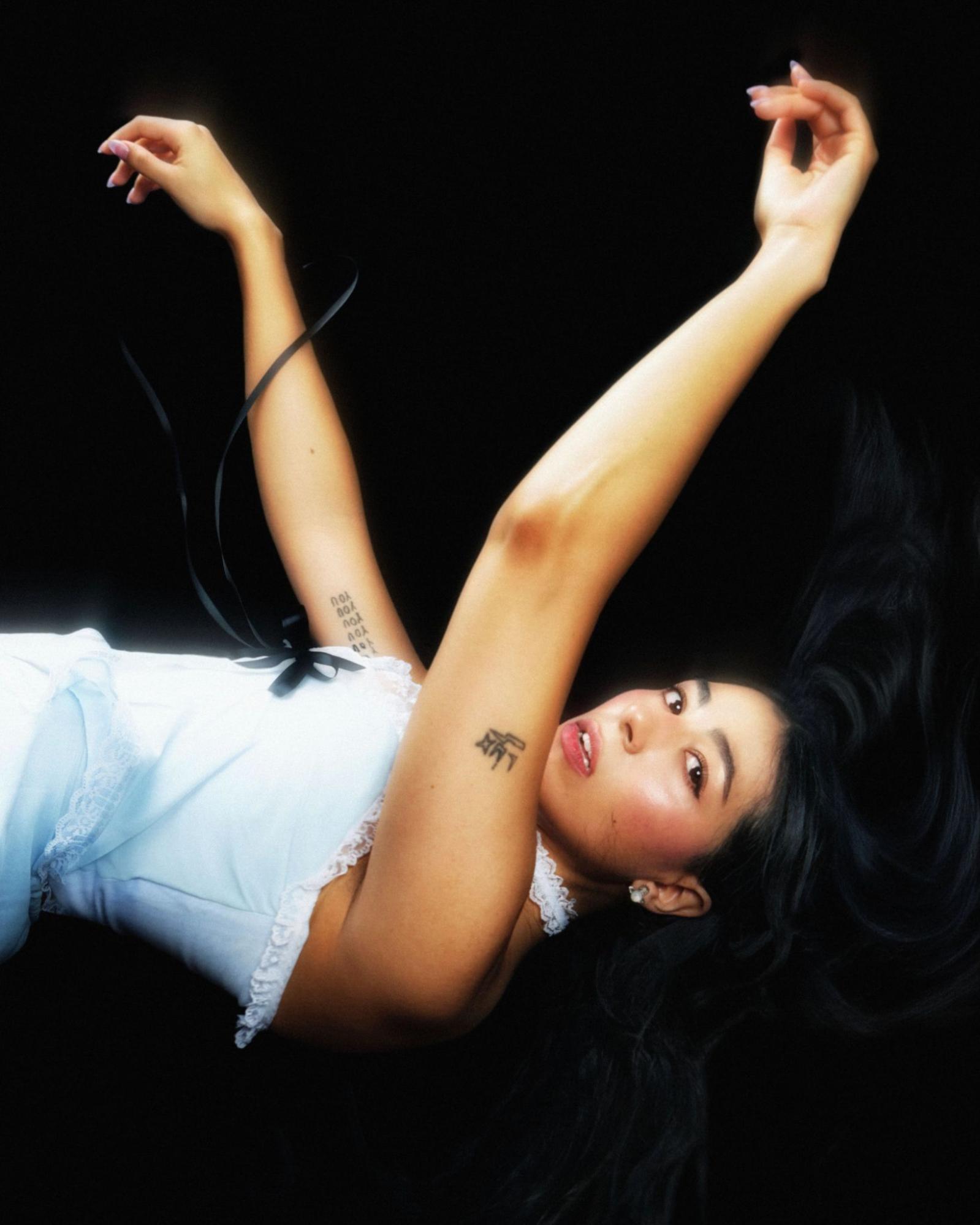
I think that’s what makes songs live on beyond the artist – when they mean something to you, separate from what they mean to me.
How did this record help you to grow as an artist?
Pom Pom Squad: It definitely forced me to push my skills and push myself to do things I didn’t think I could. I’m excited about the way my voice has grown, and I’m excited about the way I’ve grown as a producer. I’m walking away from this feeling less fearful of other people’s thoughts, opinions, or perceptions, and that’s a really nice feeling too.
And finally, what do you hope audiences and people will take away from this album?
Pom Pom Squad: I hope that they’ll listen to it with empathy and care. It makes me so happy when people can take these songs and apply them to their own lives, attaching them to personal moments. I think that’s what makes songs live on beyond the artist – when they mean something to you, separate from what they mean to me. I think that’s a really beautiful thing.
— —
:: stream/purchase Mirror Starts Moving… here ::
:: connect with Pom Pom Squad here ::
— —
Watch: “Street Fighter” – Pom Pom Squad
— — — —

Connect to Pom Pom Squad on
Facebook, Twitter, TikTok, Instagram
Discover new music on Atwood Magazine
© Eliza Jouin
:: Stream Pom Pom Squad ::

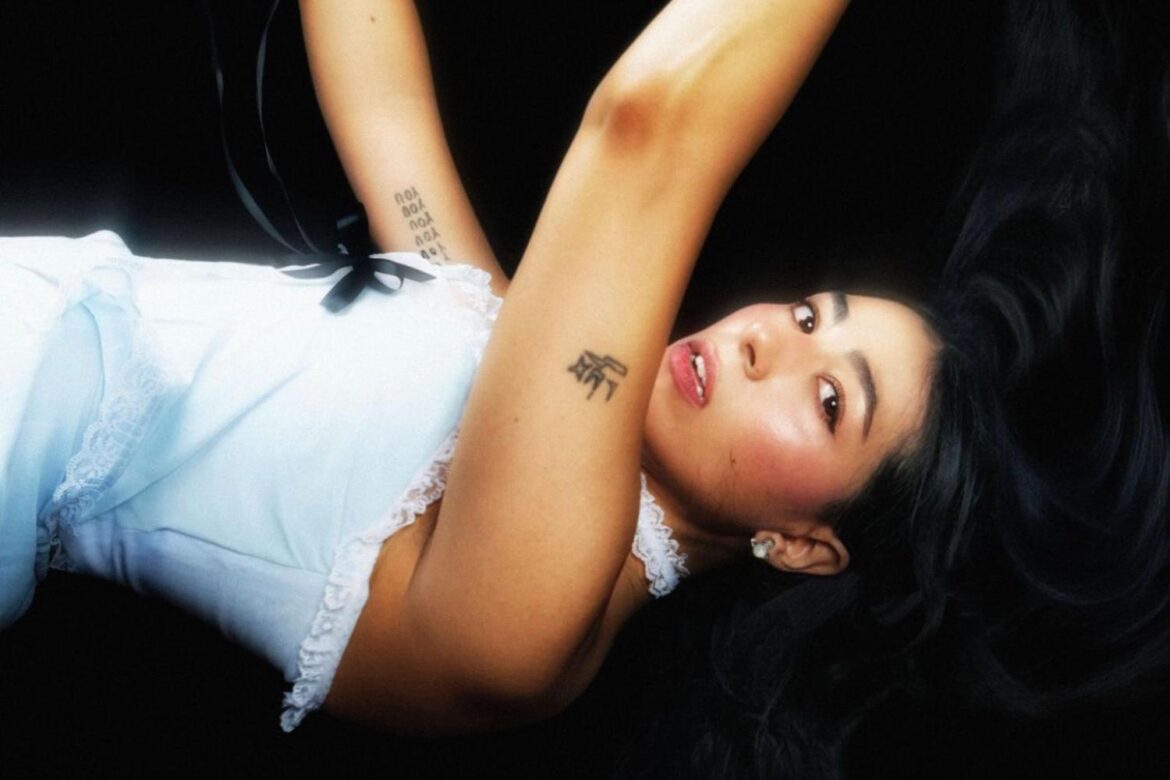
 © Eliza Jouin
© Eliza Jouin



